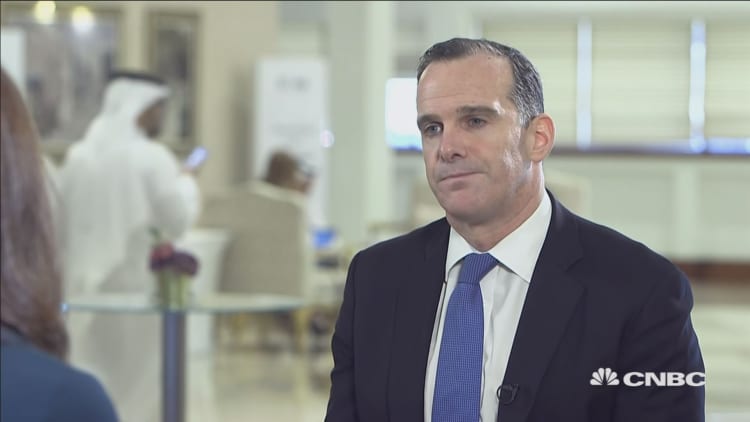
Just days before submitting his resignation, U.S. special envoy Brett McGurk, who heads the global coalition to defeat the Islamic State, said in an exclusive interview that putting an end to ISIS will be a long-term, multiyear effort.
"We're on track now over the coming months to defeat what used to be the physical space that ISIS controlled," McGurk told CNBC's Hadley Gamble. "That will not be the end of ISIS."
The conversation with McGurk took place on Dec. 15 at a security forum in Doha, Qatar. Just four days later, President Donald Trump would declare the Islamic State defeated and announce the withdrawal of all U.S. forces fighting ISIS from Syria.
"Nobody is naive," McGurk said less than a week before Trump's decision. "The small clandestine cells, the individual terrorist attacks, will remain a threat for some time. That is why we have to remain together as a global coalition to keep the pressure on."
McGurk submitted his resignation on Friday, effective Dec. 31, a State Department official said on Saturday. A person familiar with the matter said McGurk quit because he objected to President Donald Trump's decision to pull out U.S. troops from Syria, a decision followed by the resignation of U.S. Defense Secretary James Mattis a day later.
The former envoy's departure — along with that of Mattis — has sparked much internal hand-wringing in Washington, as many lawmakers worry who will fill the gap America leaves behind.
"Anytime you see vacuums open up you see extremist groups fill the vacuum," McGurk said. "We've seen it in Libya, in Yemen, and in Iraq and Syria. One of the first principal questions is try to not get into that situation in the first place."
"I think that policies that try to change regimes — obviously something that President Trump ran on — is not something that we're trying to do," McGurk said. "What we're trying to do is to make sure that we can work as best we can with governments in the region to protect their borders, to protect their homelands, share information with us so we can protect ourselves."


